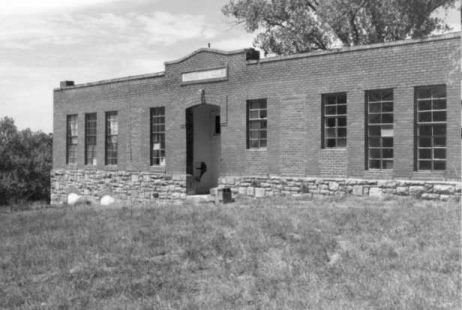The Encyclopedia of Oklahoma History and Culture
ROSENWALD SCHOOLS.
During the first half of the twentieth century educational opportunities for African American schoolchildren were stifled by racism, a shortage of money, and inadequate facilities. Beginning in the mid-teens, however, black schools throughout the south received much needed financial assistance from the Julius Rosenwald Fund. In 1913 Julius Rosenwald, president of Sears, Roebuck and Company and philanthropist for a variety of causes, began providing limited funding for the construction of black schools in Alabama. Due to the success of this endeavor and the persistent need in Alabama and other southern states, the Julius Rosenwald Fund was formally established in 1917. The fund was active in the states of Oklahoma, Alabama, Arkansas, Florida, Georgia, Kentucky, Louisiana, Maryland, Mississippi, Missouri, North Carolina, South Carolina, Tennessee, Texas, and Virginia.
The Rosenwald Fund's initial activity was to aid in the construction of new buildings for black schools. Although the fund did not supply all the money necessary for the erection of new buildings, it did provide sufficient money to act as an impetus for the local district to better their facilities. In Oklahoma the Rosenwald Fund aided in the construction of 198 education-related buildings in forty-four counties between 1920 and 1932. Of the 198 buildings, 176 were schoolhouses, ranging in size from one-teacher to twenty-two-teacher, sixteen were teacherages, and six were shops. The Rosenwald school building program ended in Oklahoma and nationally in 1932.
In addition to constructing schools the Rosenwald Fund contributed money for black school libraries, transportation to separate consolidated schools, African American teacher education, and black colleges and universities. The fund also had programs related to health and medicine, race relationships, and miscellaneous other activities related to human well-being. The Julius Rosenwald Fund continued in operation until 1948 when, as intended by Julius Rosenwald, all monies had been spent, and the trustees dissolved the fund.
See Also
AFRICAN AMERICANS, ALL-BLACK TOWNS, COLLEGES–AFRICAN AMERICAN, FREEDMEN SCHOOLS, IRA DeVOYD HALL SR., LANGSTON UNIVERSITY, FREDERICK DOUGLASS MOON, OKLAHOMA ASSOCIATION OF NEGRO TEACHERS, INMAN EDWARD PAGE, ISAAC WILLIAM YOUNG
Bibliography
James D. Anderson, The Education of Blacks in the South, 1860–1935 (Chapel Hill: University of North Carolina Press, 1988).
Edwin R. Embree, Julius Rosenwald Fund: A Review of Two Decades, 1917–1936 (Chicago: Julius Rosenwald Fund, 1936).
Edwin R. Embree and Julia Waxman, Investment in People: The Story of the Rosenwald Fund (New York: Harper & Brothers Publishers, 1949).
Cynthia Savage, "Historic Context for the Julius Rosenwald Fund in Oklahoma," State Historic Preservation Office, Oklahoma Historical Society, Oklahoma City, (August 1997).
M. R. Werner, Julius Rosenwald: The Life of a Practical Humanitarian (New York: Harper & Brothers Publishers, 1939).
Citation
The following (as per The Chicago Manual of Style, 17th edition) is the preferred citation for articles:
Cynthia Savage, “Rosenwald Schools,” The Encyclopedia of Oklahoma History and Culture, https://www.okhistory.org/publications/enc/entry?entry=RO029.
Published January 15, 2010
© Oklahoma Historical Society


